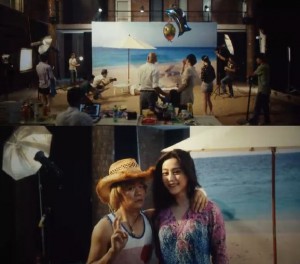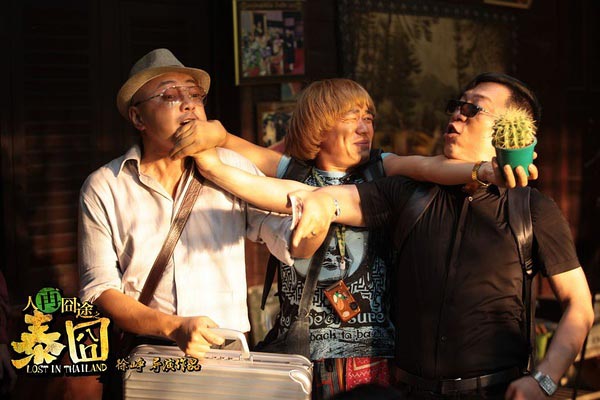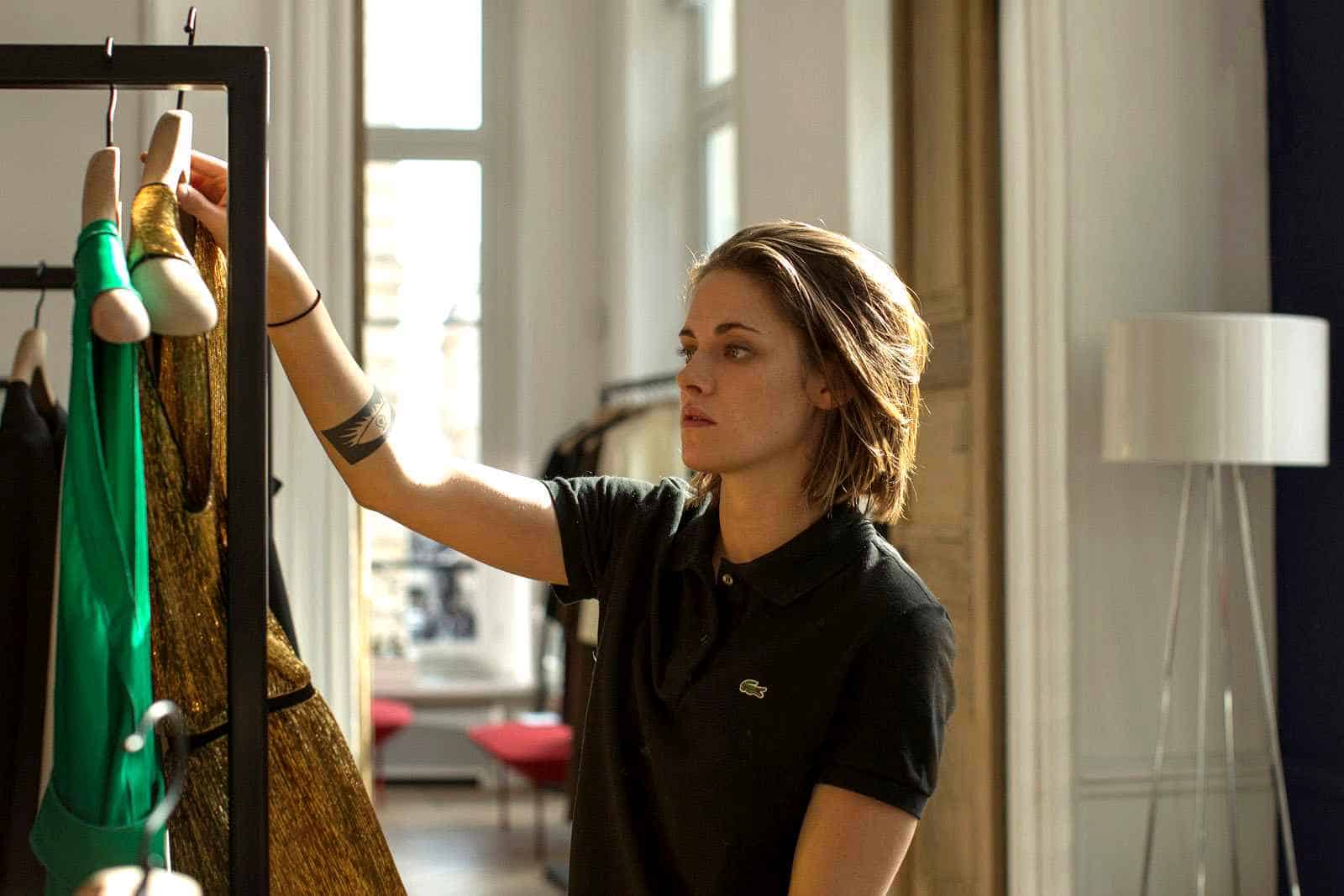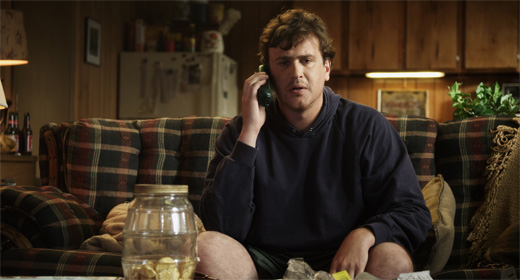Lost In Thailand
Written and Directed by Xu Zhang
2012

Xu Lang (Xu Zhang) is on his hands and knees, fingers clasped as he pleads with a desperate wife. They are in the conference room of a Beijing high-rise. Lang has just aided in the invention of a substance translated as “Supergas” and now must travel to Thailand to obtain the rights from his boss– who is on holiday meditating at one of Thailand’s many temples– to continue its development. He begs for his wife to hold off on divorce proceedings until after his business trip. As he begs, another figure enters the room. Gao Bo (Huang Bo) is Xu Lang’s friend-turned-rival and he is also after the rights to oversee the development of Supergas. However, unlike Lang, Bo wants to sell the invention to the French. As Bo enters, Lang rises to confront his competitor. From here, the two engage in a classic bit of “I know you know”/“You know I know you know” banter and the unexpectedly popular mediocre comedy that is Lost in Thailand begins.
Lost in Thailand, at its heart, is a wholesome tale of the archetypal fool – Wang Bao (Wang Baoqiang)– leading the educated or affluent – Xu Lang – toward a path of enlightenment. It’s coupled with a series of situational ironies, aloof characters, and that ever-present sense of family value, all of which ultimately make Lost in Thailand the model of a blockbuster family comedy, a film less coarse than any of its contemporary American counterparts. Its humor lingers between the influences of modern slapstick and John Hughes, influences that are not unexpected as Lost in Thailand‘s writer/director and lead, Xu Zhang, is also responsible for 2010’s Lost Journey, a Chinese rehash of Planes, Trains, and Automobiles.
Many of the awkward disasters and physical missteps that drive Lost in Thailand are the result of Wang Bao, the irritating and over-eager sidekick to Xu Lang. If you’re looking for a Western comparison, consider Barry (Steve Carell) from Dinner for Schmucks or a polite variation of Alan (Zach Galifianakis) from The Hangover. Wang Bao is oblivious, annoying, accidentally destructive, and the Chinese equivalent of an Instagram addict: a character trying to do the right thing and getting it wrong. Everywhere he goes, he carries a cactus, a picture of Fan Bingbing (a superstar in the mainland who has started appearing in films like Iron Man 3) and a list of things to do in Thailand that includes seeing the Taj Mahal– an impossibility that Xu Lang is happy to point out and Wang Bao is happy to cross off the list with a wide, toothy grin. The character is certainly nothing new for actor Wang Baoqiang, who has played the fool in a number of his previous roles. Notably, in Without Thieves, he plays a simple worker from China’s Xin Jiang province who is in constant danger of being taken advantage of. In Lost Journey, Wang plays a Del Griffith type, though he may be in need of more medication.

While much of Lost in Thailand‘s humor is indented for a Chinese audience –- Wang Bao’s love of Fan Bingbing or the endless nods to Weibo, China’s answer to Twitter –- the humor isn’t entirely unapproachable to a non-Chinese audience. With physical-comedy and universal social messages, there is plenty of room for the occasional smile. Characters endure pain in an amalgam of awkward slips, punches, kicks, slides, and falls, all accompanied by funny faces. This physical comedy is emblematic of contemporary Chinese comedy, often noted for its lack of subtlety from Western critics. However, these generalizations lose their validity when films like The Hangover Part II top the American box office. Where’s the subtlety there? In most instances, Lost in Thailand manages to use its characters’ pain to its benefit, more than once calling to the action-comedy tradition from the region. In one of the more memorable bits, we find out that Wang Bao is a Kung Fu master; the catch is that he only has one move. Of course, if you’re searching for the whimsical absurdity of a Stephen Chow action-comedy, this may not be the place to look.
Lost in Thailand has gained something its Western counterparts have not: record-breaking box office. It has become the second highest grossing film in mainland China ever. That’s no small feat with China being one of the largest film markets in the world, an accomplishment that would be impossible to guess as there is nothing especially spectacular about the film. That being said, Lost in Thailand is a far cry from a perfect comedy. The central characters float between tolerable and irritating, and while there are funny scenes, they are relatively few and far between. As Rachel Wang at Tea Leaf Nation points out here,Lost in Thailand was released in the mainland amongst a sea of war epics and historical tragedies that commonly dominate the cinemas, the implication being that mainland viewers were starved for something light-heated and fun. While there is more than pure luck and timing that propelled the buddy-comedy into it’s box-office spot, this isn’t a film that was able to reach a Western audience.

The film’s final scene could serve as an analogy for where Lost in Thailand failed the West. After the central resolution, in which Xu Lang finds his boss and comes to a catharsis of family over business, he rewards his new friend Wang Bao by giving him a “honeymoon” in the form of a photo-shoot with Fan Bingbing, playing herself. During the shoot, Wang Bao and Fan Bingbing pose, smiling against a studio backdrop of a beach. The flatness of a photo shoot ends this otherwise unsubstantial comedy. If there’s something we’re lacking in Western film, it’s not inert comedies preaching family values. Where Lost in Thailand may not have had a large competition of this at the time of its release in mainland China, it certainly does in Hollywood.






